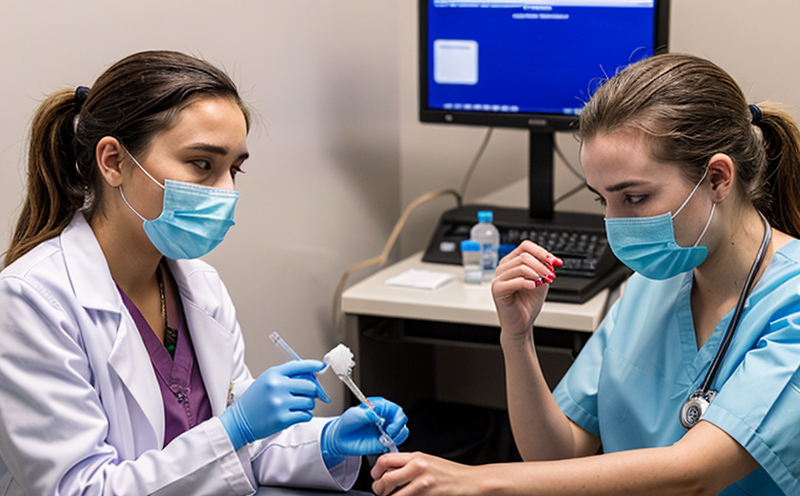CLSI M54 Mycobacteria Susceptibility Testing
The CLSI (Clinical and Laboratory Standards Institute) guideline M54 defines standardized methods for the susceptibility testing of mycobacteria, which are a diverse group of aerobic bacteria that cause various diseases in humans. This service is critical for ensuring accurate drug efficacy assessments and guiding appropriate treatment regimens.
The process involves several key steps: isolation and identification of the mycobacterial strain, preparation of the growth medium, inoculation with test antimicrobial agents, incubation over an extended period (typically 4-8 weeks), and interpretation of results. This lengthy procedure is necessary due to the slow growth rates of these microorganisms.
For quality managers and compliance officers, accurate susceptibility testing ensures adherence to regulatory standards such as CLSI M54. R&D engineers rely on this service to optimize new drug formulations and combination therapies. Procurement teams benefit from knowing that consistent, reliable results contribute to evidence-based decision-making in the selection of effective antimicrobial agents.
Understanding the importance of CLSI M54 testing underscores why it is a cornerstone for managing infectious diseases caused by mycobacteria, including tuberculosis (TB) and leprosy. This method ensures that healthcare providers are equipped with the most accurate information to combat these pathogens effectively.
Scope and Methodology
| Step | Description |
|---|---|
| Isolation and Identification | Purification of the mycobacterial strain from clinical samples, followed by species-specific identification using biochemical tests or genetic markers. |
| Growth Medium Preparation | Preparation of Middlebrook 7H10 agar with appropriate supplementation for optimal growth conditions. |
| Inoculation and Incubation | Iodine-stamped disks containing various antimicrobial agents are placed on the inoculated agar plates, which are then incubated at 35°C to 37°C for a minimum of four weeks. |
| Result Interpretation | The presence or absence of growth inhibition around the disks is evaluated and compared against established criteria. |
This extensive methodology ensures that susceptibility testing results are both reproducible and reliable, which is crucial for therapeutic efficacy.
Eurolab Advantages
- Expertise: Our team of microbiologists and laboratory professionals adheres strictly to CLSI M54 guidelines.
- Precision: State-of-the-art equipment, including automated systems for inoculation and result reading, guarantees high accuracy.
- Timeliness: Rapid turnaround times without compromising the thoroughness of testing.
- Compliance: Our processes are meticulously designed to meet all regulatory requirements.
We pride ourselves on providing comprehensive support and clear communication throughout the testing process, ensuring that our clients receive actionable insights into their mycobacterial strains’ susceptibility profiles.
Customer Impact and Satisfaction
- Improved Treatment Outcomes: Accurate susceptibility testing leads to more effective treatment regimens, reducing treatment failures and patient relapses.
- Enhanced Compliance: Ensures that healthcare providers are adhering to the latest guidelines and standards for mycobacterial infections.
Our clients report higher levels of satisfaction due to the reliability and consistency of our test results, which they can confidently use in their decision-making processes. This service not only supports patient care but also contributes significantly to public health initiatives aimed at controlling infectious diseases.





